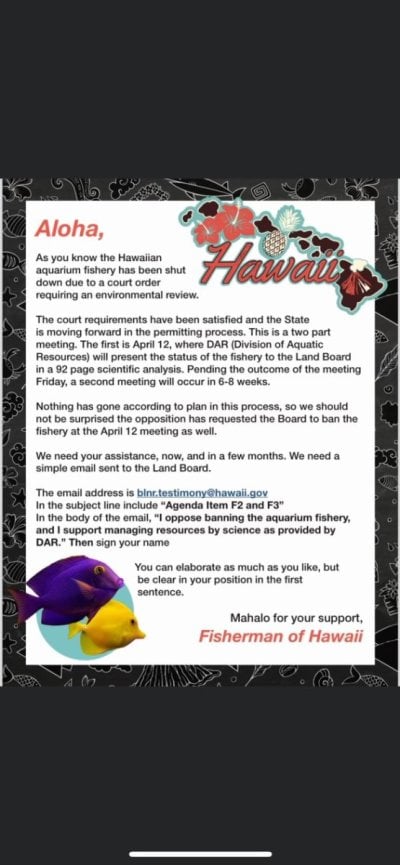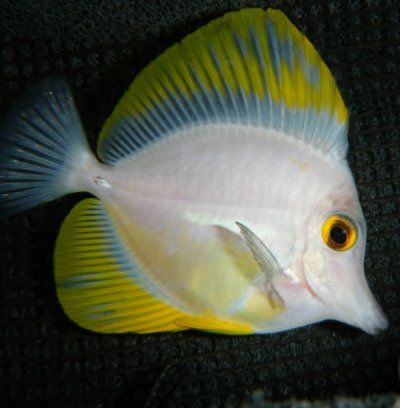Aloha and greetings from the islands,
As most of you are aware the Hawaiian aquarium fishery has been shut down for years while we worked through this review process. We are finally at the end stages of it after getting an accepted environmental review(EIS) affirming it in court, and clearing the path for issuing permits. We now have two meetings at the Board of Land and Natural Resources. (BLNR) we are asking all of our friends and interested parties to please take a moment and submit testimony in support of the fishery. We believe in science based fishery management and we also believe science provided by the Division of Aquatic Resources(DAR) is accurate and true….this fishery is the most managed and sustainable fishery in the State of Hawaii! It’s a model fishery that should be emulated, not banned. If you believe that resource management should be done through science and not arbitrary reasoning, please send in support. There are going to be two meetings, one this Friday, April 12th and another one in a couple months. If you have any questions or concerns, drop me a line and I’ll try my best to give you an answer and mahalo for all the support!
Affordable yellow tangs will return!
Attached is a flyer that has all the directions for submitting testimony and a link to the recent findings by DAR that will be presented on Friday that you can review and may help you craft your testimony

As most of you are aware the Hawaiian aquarium fishery has been shut down for years while we worked through this review process. We are finally at the end stages of it after getting an accepted environmental review(EIS) affirming it in court, and clearing the path for issuing permits. We now have two meetings at the Board of Land and Natural Resources. (BLNR) we are asking all of our friends and interested parties to please take a moment and submit testimony in support of the fishery. We believe in science based fishery management and we also believe science provided by the Division of Aquatic Resources(DAR) is accurate and true….this fishery is the most managed and sustainable fishery in the State of Hawaii! It’s a model fishery that should be emulated, not banned. If you believe that resource management should be done through science and not arbitrary reasoning, please send in support. There are going to be two meetings, one this Friday, April 12th and another one in a couple months. If you have any questions or concerns, drop me a line and I’ll try my best to give you an answer and mahalo for all the support!
Affordable yellow tangs will return!
Attached is a flyer that has all the directions for submitting testimony and a link to the recent findings by DAR that will be presented on Friday that you can review and may help you craft your testimony

Last edited:



















